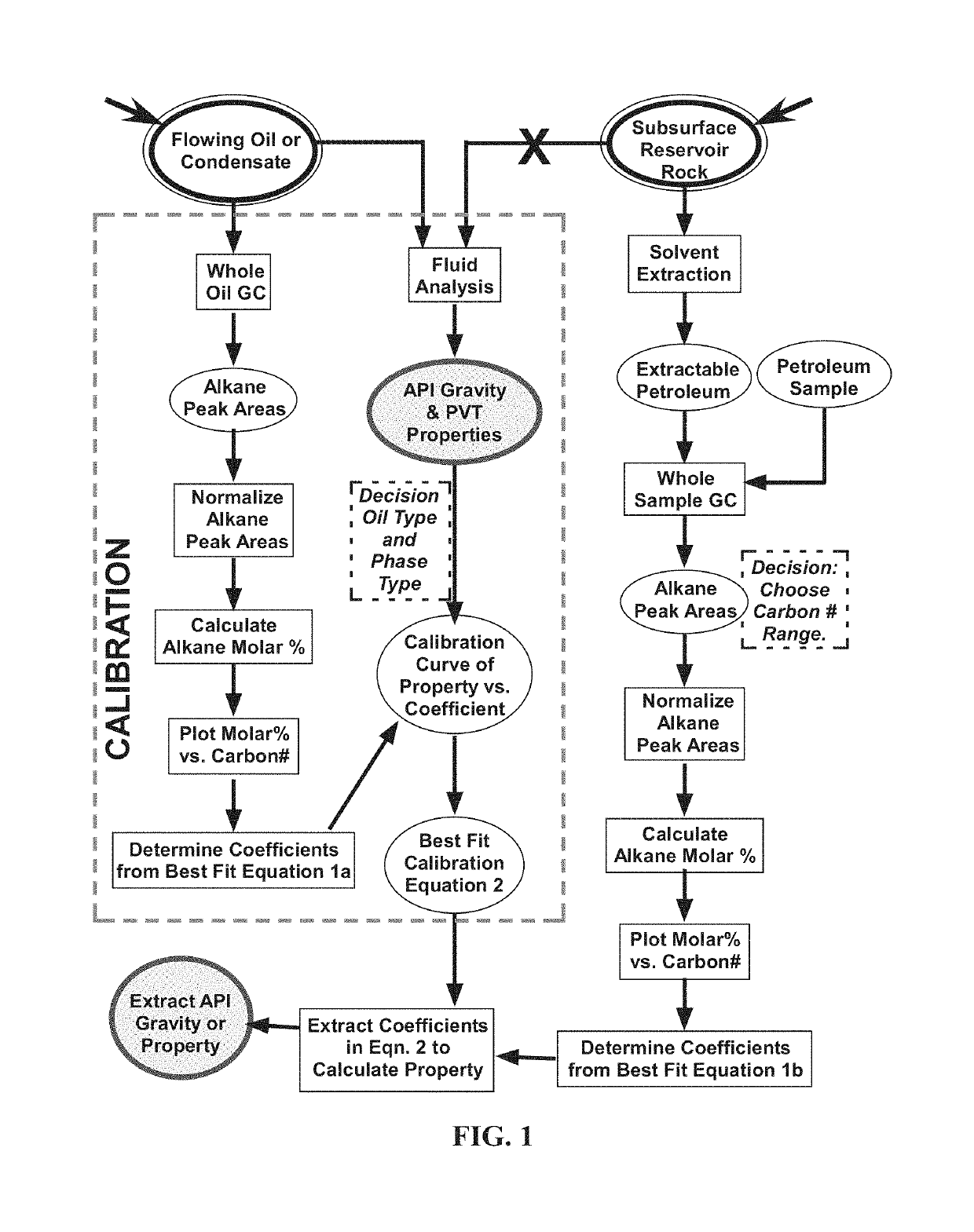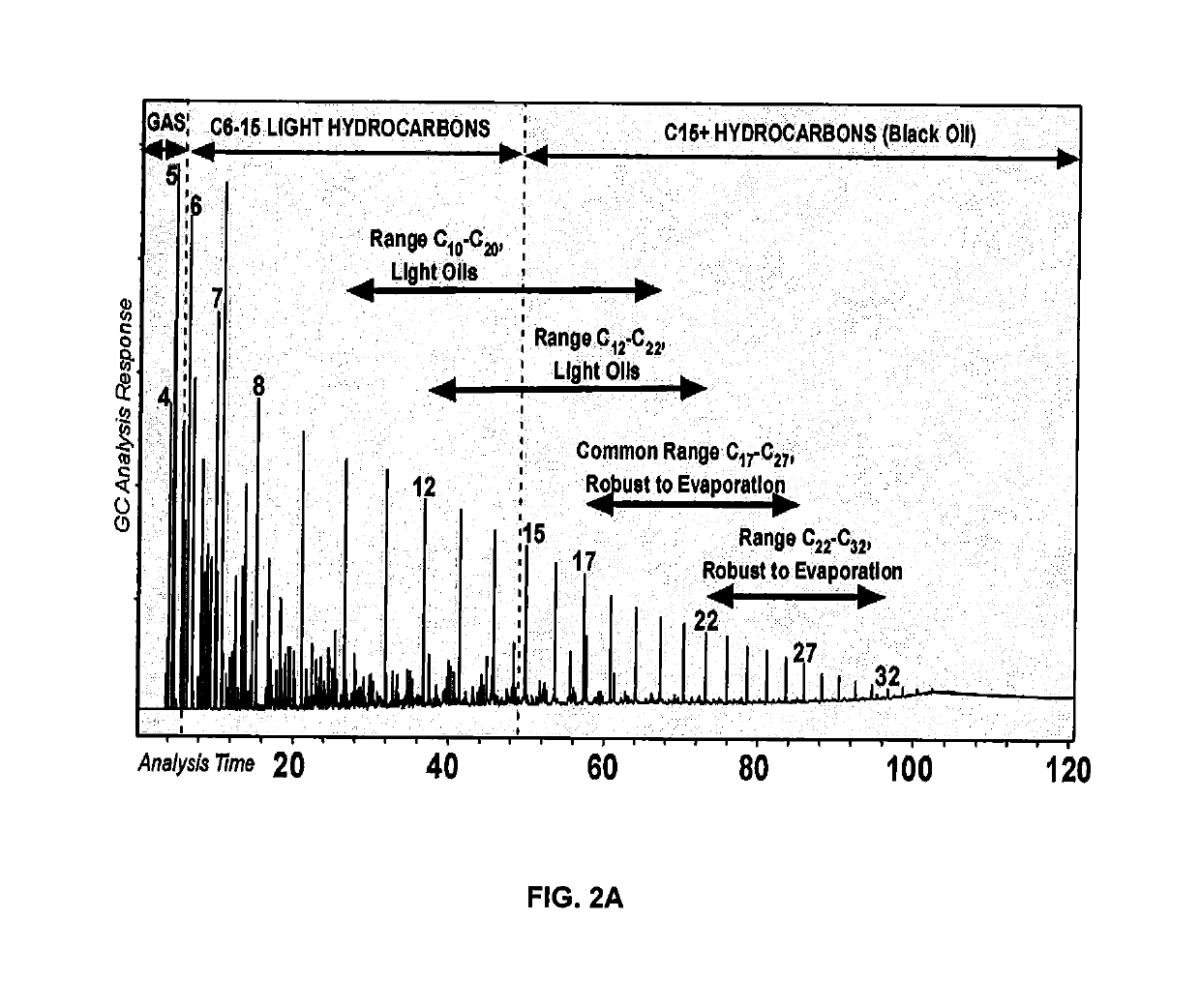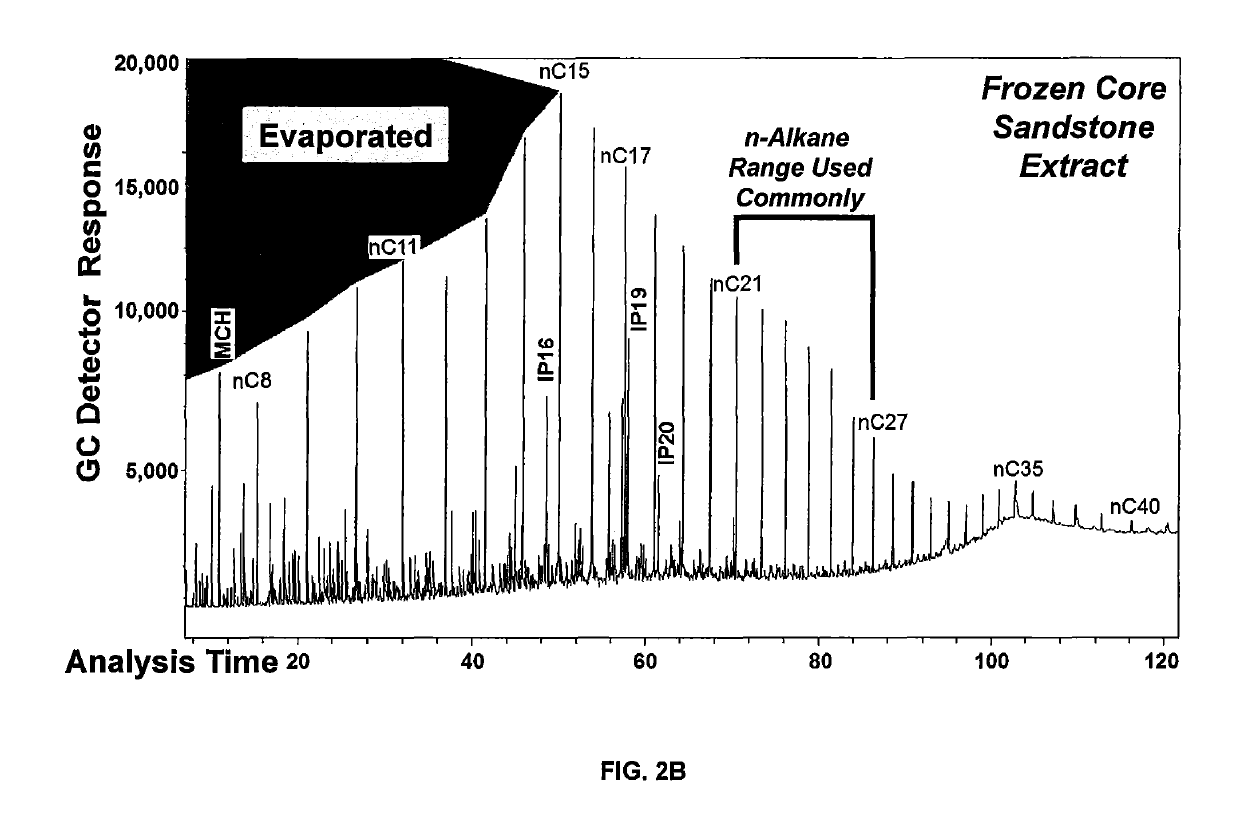Petroleum-fluid property prediction from gas chromatographic analysis of rock extracts or fluid samples
a technology of fluid sample and petroleum, which is applied in the field of petroleum-fluid property prediction from gas chromatographic analysis of rock extracts or fluid samples, can solve the problem of insufficient sample amount for proper analysis
- Summary
- Abstract
- Description
- Claims
- Application Information
AI Technical Summary
Benefits of technology
Problems solved by technology
Method used
Image
Examples
example
[0043]A gas chromatogram (GC) was analyzed from a Soxhlet extract of a sidewall core (SWC) taken from a fine grained sandstone (FIG. 6). Light hydrocarbons smaller than nC15 were lost during the extraction. The GC peak areas are proportional to component weight percent (wt %) and are entered into the spreadsheet as raw data. FIG. 7 provides a table showing actual numbers abstracted from the spreadsheet calculator. The first step is to normalize the data so that the sum adds to 100 [Normalized wt %=(peak area*100) / sum of all areas]. The next step converts the normalized wt % to a calculated mole % using EQ. 2.
Mole %=[(100*wt % Cn / MW Cn) / (Σ(wt % Cn / MW of Cn)] (2)
[0044]The mole % are renormalized for the carbon range of interest (last column FIG. 7), in this case nC17 to nC27 and the result plotted on a log scale vs. the carbon number for each alkane (FIG. 6B). The resulting equation for the best linear fit line is in the form of EQ. 1 and yields the A factor (coefficient) and the B f...
PUM
| Property | Measurement | Unit |
|---|---|---|
| volume | aaaaa | aaaaa |
| fluid property | aaaaa | aaaaa |
| volume | aaaaa | aaaaa |
Abstract
Description
Claims
Application Information
 Login to View More
Login to View More - R&D
- Intellectual Property
- Life Sciences
- Materials
- Tech Scout
- Unparalleled Data Quality
- Higher Quality Content
- 60% Fewer Hallucinations
Browse by: Latest US Patents, China's latest patents, Technical Efficacy Thesaurus, Application Domain, Technology Topic, Popular Technical Reports.
© 2025 PatSnap. All rights reserved.Legal|Privacy policy|Modern Slavery Act Transparency Statement|Sitemap|About US| Contact US: help@patsnap.com



